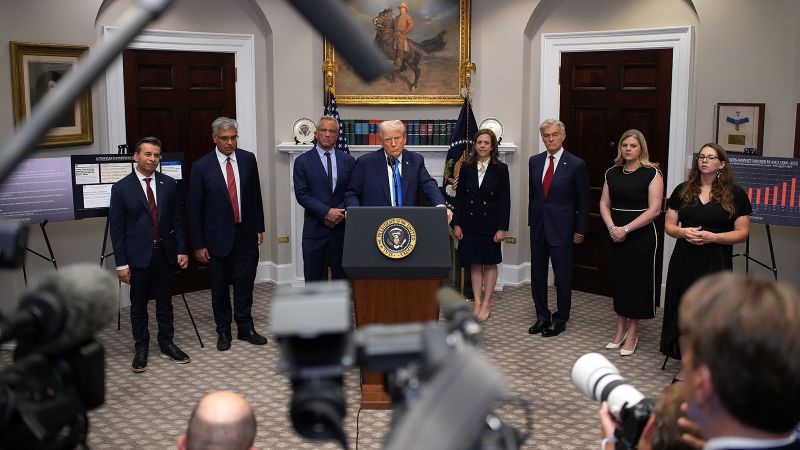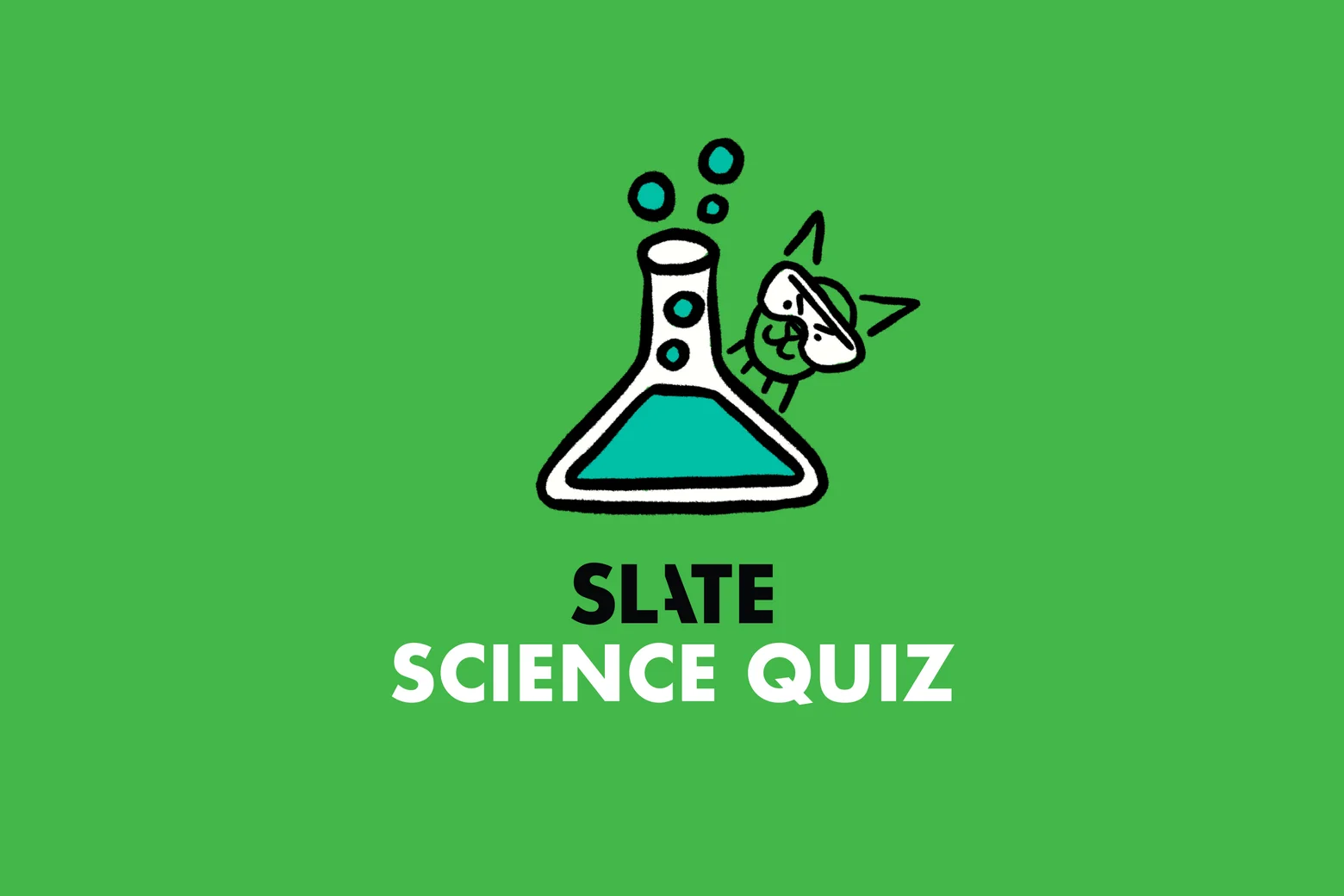
Donald Trump’s presidency unspools so fast that it often looks like a set of outbursts fueled by nothing more than his own random obsessions.
On Monday alone, the White House shattered scientific consensus on the causes of autism and designated a left-wing antifascist movement as a domestic terrorist group despite questions over whether it has the power to do so. Washington was reverberating with Trump’s demands for Attorney General Pam Bondi to prosecute his political opponents — despite an apparent lack of solid evidence. And Trump’s emerging effort to destroy media freedoms and to suppress freedom of speech suffered a rare hiccup, as ABC cleared Jimmy Kimmel for a return to air following a controversy over his remarks about Charlie Kirk’s suspected killer.
Any of these dramas might rank as the most intense political controversies in a conventional administration. In another time, several might have triggered impeachment proceedings. And they only darkened an already somber time peppered by warnings of encroaching autocracy.
But millions of Americans who live in different political, media and cultural ecosystems than Trump’s critics do not see his actions as a mortal threat to their country, culture or well-being.
Their support proves Trump’s actions are not just driven by personal whims. They often form part of a coordinated strategy to reward those who put him in office.
Trump proved with his belligerent speech at Kirk’s memorial service on Sunday that he’s never had much interest in governing for the entire country. But his skill in framing national issues to match the preoccupations of conservative voters and his diligence in delivering on their priorities explains how he maintains a viable support base for the most disruptive presidency of modern times.
It may not allow him to govern with majorities. And many voters might have thought they were getting a president who would reduce grocery and housing prices as he promised.
But two of the controversies that raged on Monday, over Trump’s manipulation of the legal and public health systems, show how he uses government power to fortify his political position.
Bondi under pressure
Trump’s weekend social media post calling on Bondi to quickly start prosecuting his personal and political opponents was one of the most flagrant violations ever by a president of the supposed invisible wall between the White House and the Department of Justice. Had it emerged in a leaked report to a newspaper, rather than in a public post, it might have triggered a major scandal since it seems to be a clear abuse of presidential power and the justice system.
In a related matter, Trump appointed Lindsey Halligan, a White House aide, to serve as top federal prosecutor in the Eastern District of Virginia, according to people familiar with the situation. She will replace Erik Siebert, pushed out over his failure to charge one of Trump’s foes, New York Attorney General Letitia James.
The implications of Trump’s interference are grave. The integrity of the legal system rests on the perception that everyone is equal before it and that political interference has no say in prosecutorial decisions. Politicized justice is a hallmark of despotic banana republic states. The system also cannot long endure if prosecutors are fired when they conclude that there is insufficient evidence to bring charges, whatever presidents say.
“There’s this Lady Justice who’s supposed to say — indicated with the blindfold — that justice is blind to everybody. Nobody’s above the law. Nobody’s below the law. It is applied equally,” former Obama administration chief of staff Rahm Emanuel said on “The Situation Room” Monday.
“It seems like Lady Justice now needs an eye patch, where she can only see basically to the left, where she’s going to apply the law,” said Emanuel, a CNN senior political and global affairs commentator.
Trump’s contempt for such principles is one reason why he looks increasingly like a tyrant in the making.
Yet, on Trump’s side of the aisle, supporters see him more as a victim of politicized justice than a perpetrator of it. His success in portraying himself as a persecuted political figure amid his multiple indictments helped him revive his political career last year. His defiance explains why Republican lawmakers refuse to irk their base voters and constrain him, even though his actions often appear to threaten the rule of law and there may be no evidence to support his demand for prosecutions of his opponents.
“President Trump is very open and transparent with the American people, and he speaks his mind. And that’s what his supporters love about him and that’s what America loves about him,” Sen. Markwayne Mullin told CNN’s Dana Bash on “State of the Union” Sunday. The Oklahoma Republican said it was fair game for Trump to go after ex-FBI Director James Comey and California Democratic Sen. Adam Schiff. “What President Trump is saying here is, it’s time to look into them and … hold them accountable for what they said.”
(Comey was fired by Trump over the Russia investigation and was interviewed by the Secret Service over a social media post featuring seashells in the shape of the numerals 86 and 47, which administration officials claimed could be viewed as a threat to Trump. Schiff led investigations into Trump as a member of the House during Trump’s first term. He’s being probed by the current administration over alleged leaks and allegations of mortgage fraud. Both men have denied wrongdoing and neither has been charged.)
The White House understands that Trump’s brazen defiance in such controversies is a selling point for like-minded voters, who believe previous administrations were corrupt and that the current president is correcting the situation.
“We are not going to tolerate gaslighting from anyone in the media or from anyone on the other side who is trying to say that it’s the president who is weaponizing the DOJ,” White House press secretary Karoline Leavitt said Monday. “It was Joe Biden and his attorney general who weaponized the DOJ. Joe Biden used this sacred American institution to go after his political opponent in the middle of an election year.”
As a reminder, Trump was indicted by a grand jury in a federal case for alleged offenses including his attempt to use presidential power to overturn the democratic will of voters who voted him out in the 2020 election. And he was convicted by a jury in New York of all 34 charges of falsifying business records in a case centering a hush money payment to an adult film star.
Trump’s moves on autism alarm experts
Trump’s major announcement on autism on Monday was example of how his shattering of conventions plays into his political goals, even if might create danger for Americans.
He announced the government would advise that the use of acetaminophen during pregnancy “can be associated with a very increased risk of autism.” The new guidance contradicted expert analysis that the condition can be caused by multiple factors and that the connection between the use of the painkiller during pregnancy and autism is not proven.
Trump also weighed in on the safety of some child vaccines, showing an alarming lack of knowledge and even less awareness that untutored views coming from such a powerful platform could actively harm the health of Americans.
“We understood a lot more than the people who studied it,” Trump told Health and Human Services Secretary Robert F. Kennedy Jr. of the autism issue, recalling his chaotic off-the-cuff leadership during the Covid-19 pandemic.
If Trump looks like he’s trashing the principles of science and clinical trials, then it’s probably deliberate. His appearance Monday played into the skepticism of science-backed health-care and vaccine skepticism that Kennedy has long pushed.
But there’s a strong political rationale for his strategy.
The quid quo pro of putting Kennedy, who is regarded by many experts as a dangerous crank, in charge of American public health was his legions of voters who are deeply skeptical of vaccine schedules and who don’t trust government health experts. The Make America Healthy Again coalition includes activists from the right and the left who might not otherwise have been available to Trump. This group is highly engaged, especially on issues including pesticides, fluoridation of water and the perils of ultraprocessed food. Even if their numbers are small, they could play an important role in closely fought congressional races in the 2026 midterms.
MAHA voters are also a good fit for Trump since they complement the fierce skepticism of public health authorities among MAGA voters sown during the Covid-19 pandemic, which conservative leaders including the president have used as a power multiplier since.
Many conservatives balked at government health advice during the pandemic for people to wear masks. Some saw school closings and business shutdowns as unconstitutional infringements on their liberty. The backlash was so intense that Trump still feels unable to fully claim credit for Operation Warp Speed, the drive to a Covid-19 vaccine in record time that likely saved millions of lives. Kennedy has felt no political inhibitions in canceling millions of dollars in funding for research on mRNA vaccines that could prevent a future pandemic.
The mistrust that growing numbers of Americans have for establishment scientists and official expertise has become a powerful force in conservative politics. And Trump’s willingness to overturn the official consensus on autism comes with another benefit. He campaigned as an insurgent who’d get back to Washington and reveal the secrets of the legal, scientific and medical deep state. But his administration’s refusal to release all the files on his former friend Jeffrey Epstein, a convicted sex offender, has mocked such pretensions. Letting Kennedy loose to vent his scientific heresies might restore some of that lost street cred.
And anyway, Trump always seems happiest, and most effective when he’s stirring his secret sauce: the anger of his supporters at perceived elites they abhor.



